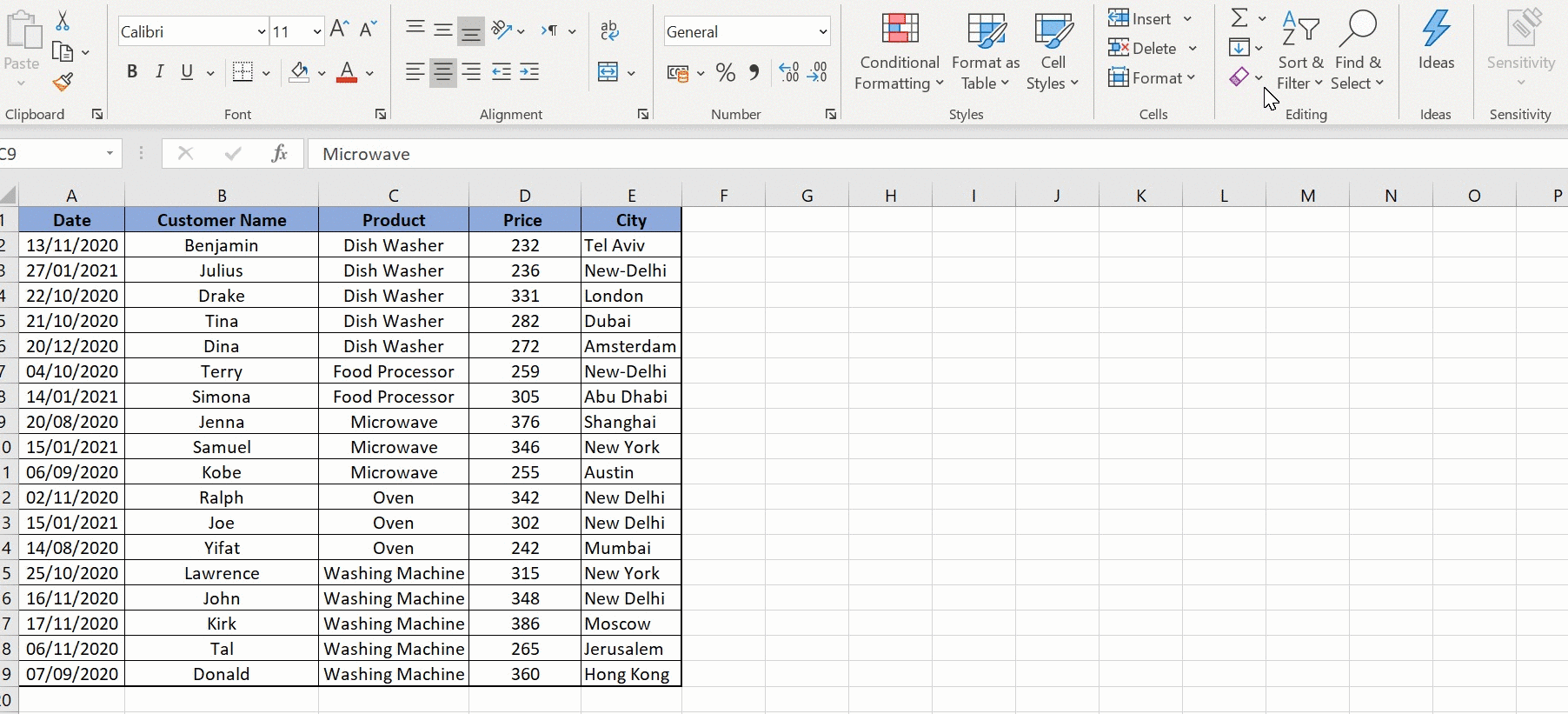Excel Sorting Made Easy: Numerical Order Guide

Excel is an indispensable tool for managing and analyzing data, but for many users, sorting data efficiently remains a daunting task. Sorting numerically is crucial for organizing data like sales figures, inventory counts, or any quantifiable metrics. This blog post will guide you through the process of sorting numerical data in Excel, ensuring your spreadsheets are organized, accurate, and easy to analyze. From basic sorting options to more complex scenarios involving custom rules, you'll master Excel's sorting capabilities in no time.
Basic Numerical Sorting

To start sorting numbers in Excel, follow these simple steps:
- Select the column containing the numbers you wish to sort. If you want to keep rows intact, select the entire dataset.
- Go to the Data tab in the ribbon.
- Click on Sort & Filter and choose Sort Smallest to Largest or Sort Largest to Smallest.

This method sorts your numbers in the simplest way, but there are many scenarios where this might not be sufficient.
Sorting with Multiple Columns

If your dataset includes several columns and you need to sort by one while maintaining the integrity of related data:
- Highlight all the rows you want to sort.
- Go to the Data tab and click Sort.
- In the Sort dialog box, choose your primary column for sorting under 'Column'.
- Select Sort On as 'Values' and choose your order under 'Order'.
- Click Add Level if you need to sort by secondary columns, defining how they should relate to the primary column.
📝 Note: Using the 'Add Level' option allows you to sort by more than one criterion at once, ensuring your data remains organized across multiple dimensions.
Advanced Sorting Techniques

Excel provides advanced sorting techniques for when your data includes numerical values but also other data types:
Custom Sort Lists

- Create your own list in Excel under File > Options > Advanced > Edit Custom Lists.
- Sort your data by referencing this custom list by selecting Cell Color, Font Color, or Icon in the Sort dialog.
Sorting by Color or Icon

- In the Sort dialog box, choose 'Cell Color,' 'Font Color,' or 'Icon' under 'Sort On'.
- Specify the color or icon you want to sort by in the 'Order' section.
Using Formulas for Sorting

If you need to sort based on a formula's output:
- Create a column with the formula you want to sort by.
- Sort this column to arrange your data according to the formula's results.
| Column A | Column B | Column C (Formula) |
|---|---|---|
| 10 | Red | =A2*2 |
| 5 | Blue | =A3*2 |
| 20 | Green | =A4*2 |

🔍 Note: Using formulas for sorting can be particularly useful when you need to sort data based on calculated values or conditions that aren't directly represented by the raw data.
Troubleshooting Common Issues

Sorting doesn't always go as planned. Here are some common problems and their solutions:
- Mixed Data Types: If your column contains both numbers and text, Excel might not sort correctly. Ensure all entries are of the same type.
- Blank Cells: Blank cells can skew sorting; consider replacing them with 0 or a text placeholder.
- Sorting Not Affecting All Data: If you're sorting only a column, other columns won't move. Highlight your entire dataset to prevent this.
By addressing these common issues, you can make your sorting tasks much smoother.
Wrapping up, understanding how to sort numerical data in Excel is fundamental for data management. From basic sorting to complex, custom orders, Excel offers a range of tools that, once mastered, can significantly enhance your efficiency in handling numbers. Remember to use these techniques wisely to ensure your data remains accurate and coherent after sorting. Whether you're sorting sales figures, organizing inventory, or analyzing any numerical data, these steps will guide you towards making the most out of Excel's powerful sorting capabilities. Now, go forth and organize your data like a pro!
How do I undo sorting in Excel?

+
Press Ctrl + Z to undo the last action, which should reverse the sort. If multiple actions were performed, you might need to undo several times or use version history in Excel to revert to a previous state.
What if my numbers are formatted as text?

+
Select the cells, right-click, choose ‘Format Cells’, and ensure the numbers are set to the ‘Number’ format. Then, you can sort normally.
Can I sort by date in Excel?

+
Yes, dates in Excel are treated as serial numbers, so you can sort by date using the same methods described for numerical sorting. Ensure your dates are recognized as dates, not text, for accurate sorting.
How can I sort numbers with custom lists?

+
Create a custom list through Excel’s options, then use this list to sort your data by selecting ‘Cell Color, Font Color, or Icon’ in the Sort dialog box and reference your custom list.



